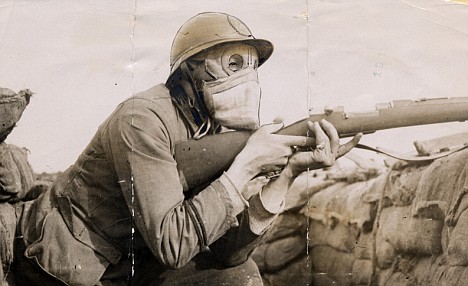Chapter One Hundred and Eleven – Resolutions in the Reichstag.
“Our war must continue – if only in self defence”
Matthias Erzeberger, Chairman, Zentrum
“You have been made to fight for a war that you did not believe in…now fight for a peace you so desperately need!”
Sitzkrieg Putsch Leader Gunther Hergett
Whilst the situation at the front might have been dire, with mutinies and retreats dominating a panicked general staff, the German Home Front was more divided. True, shortages and heavy losses had caused many to weary of the conflict. But decades of fear of the socialist menace, and the shock of uprisings in Poland and the Ukraine, infected the German populace with a sense of terror.
‘Your homes will be ransacked, your children re-educated, your belongings re-distributed, your names erased’ ran one panicked headline in a Stuttgart newspaper. Sales of personal handguns, hunting rifles, and even knives and pocket-blades all spiked. Well suited men and civil servants took to carrying weapons in public and women’s domestic magazines carried full page adverts featuring locks, latches, and other security devices for the home. Naval forces in Stettin were in crisis, with soldiers freely fraternising with workers and civilians in the city and ignoring their officers. The Berlin garrison, wrote the Justice Minister, ‘is in a state of torpor – paralyzed by politics’.
As early as January 1920 popular enthusiasm for self-defence had seen the Interior Ministry support the creation of the local “Landwehr” throughout the country where those men too old, too young, or in reserved occupations could be gathered and trained. In reality many were poorly provided for and chaotically run but in major cities some Landwehr units could be highly motivated. They found particular purchase amongst patriotic teenagers especially as membership of a socialist party or trade union barred one from participation. Indeed even members of the Government-supporting pro-war Social Democrats were forbidden from joining Landwehr units despite the Party’s protests in the Reichstag.
The Reichstag itself was a hotbed of tension. Catholics across Germany were terrified of being persecuted or purged by the socialists, whipped up by the Papacy’s anti-Communard rhetoric, and the Catholic Centre Party
Zentrum that dominated the Government’s wartime coalition was as fearful as the conservative right. So fearful infact that, when they learned that the Chancellor Prince Max von Baden had been approaching the Kaiser about peace talks they demanded his resignation and, when that was not forthcoming, censured him.
The Reichstag voted, on 21st May 1920, to continue the war by 337 to 60.
Zentrum was the driving force, with conservative parties supporting. The Chairman, Matthias Erzeberger, made an impassioned speech damning the cowardice of the army and calling the German people to arms to defend the Fatherland. The SPD split, with the leadership voting for the war and only a rump rejecting the premise. ‘The death-knell of a dying sham party’ opined Rosa Luxembourg, currently in hiding in Bavaria. But as the Kaiser, who refused to return from his Headquarters on the Oder, demurred on the issue, groups met in secret in the Reichstag.
The Reichstag members, of course, did not have the final say over the conduct of the war but, in those heated days of panic and rumour, the vote caused chaos. Demonstrations filled the streets and, on 23rd May Prince von Baden was “arrested” by a patriotic Landwehr unit in Berlin. Soldiers from the Berlin Garrison refused to come out to guard the Reichstag from the crowds however, the units shot through with Sitzkrieg ideology, and the Government relied more and more on Landwehr volunteers who clashed with trade unionists and raided socialist newspapers and clubs.
Troops loyal to the 27th May Putsch prepare to seize the Berlin Stock Exchange
In the cold dawn of 27th May Erzeberger made his move. Soldiers, Landwehr, police officers, and ordinary civilians with yellow armbands to denote their loyalty to the putsch pilled out of trucks in the centre of Berlin to seize railway stations, telephone exchanges, and government buildings.
‘A Democratic Coup to Save Germany’ was what Erzeberger announced from the windows of a downtown hotel later that morning. ‘We WILL save Germany from socialism. We WILL fight on, despite the cowardice of the Heer’.
Across the capital, and across Germany, the shockwaves of this Putsch rippled outwards through a divided and agonized society.


